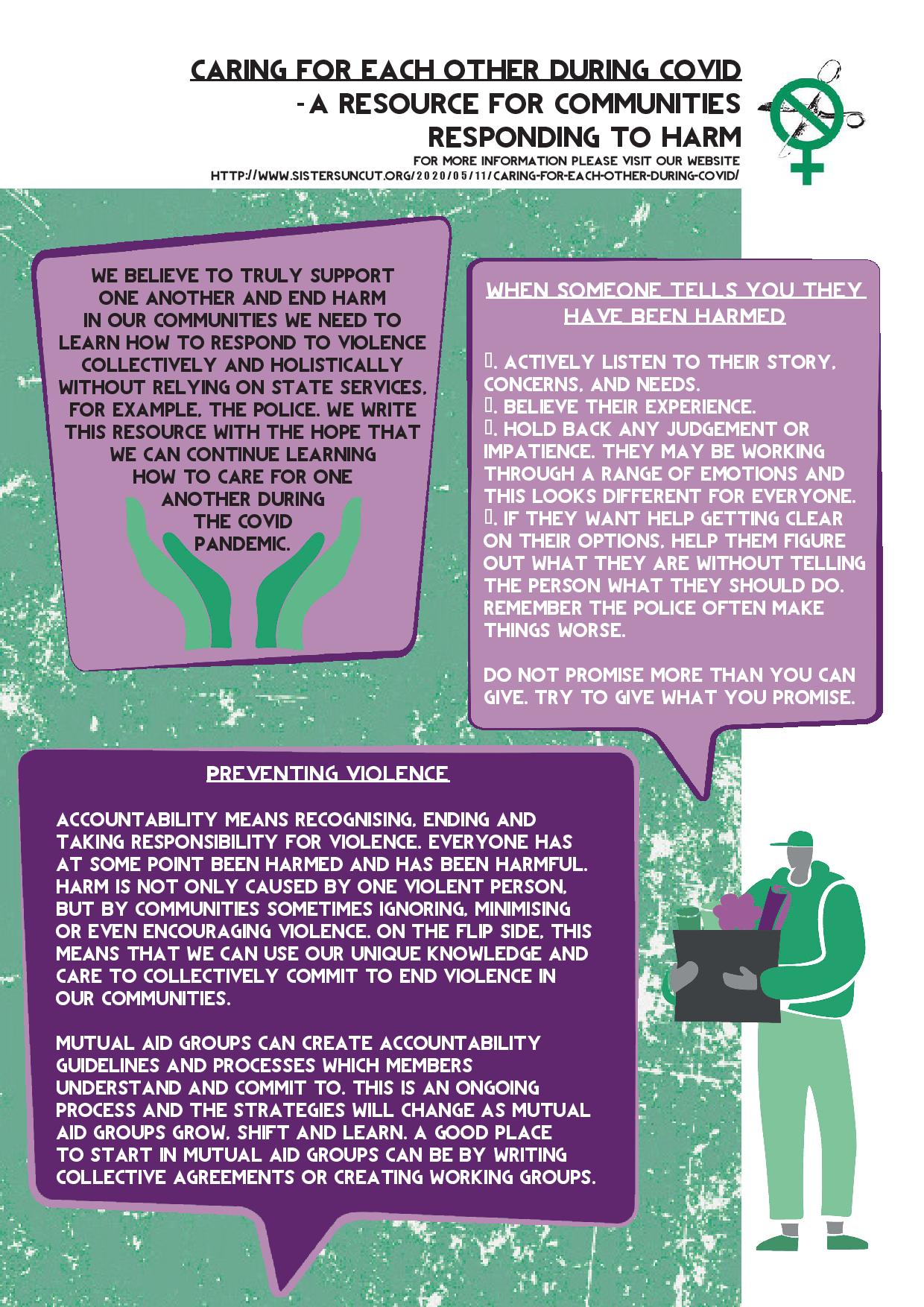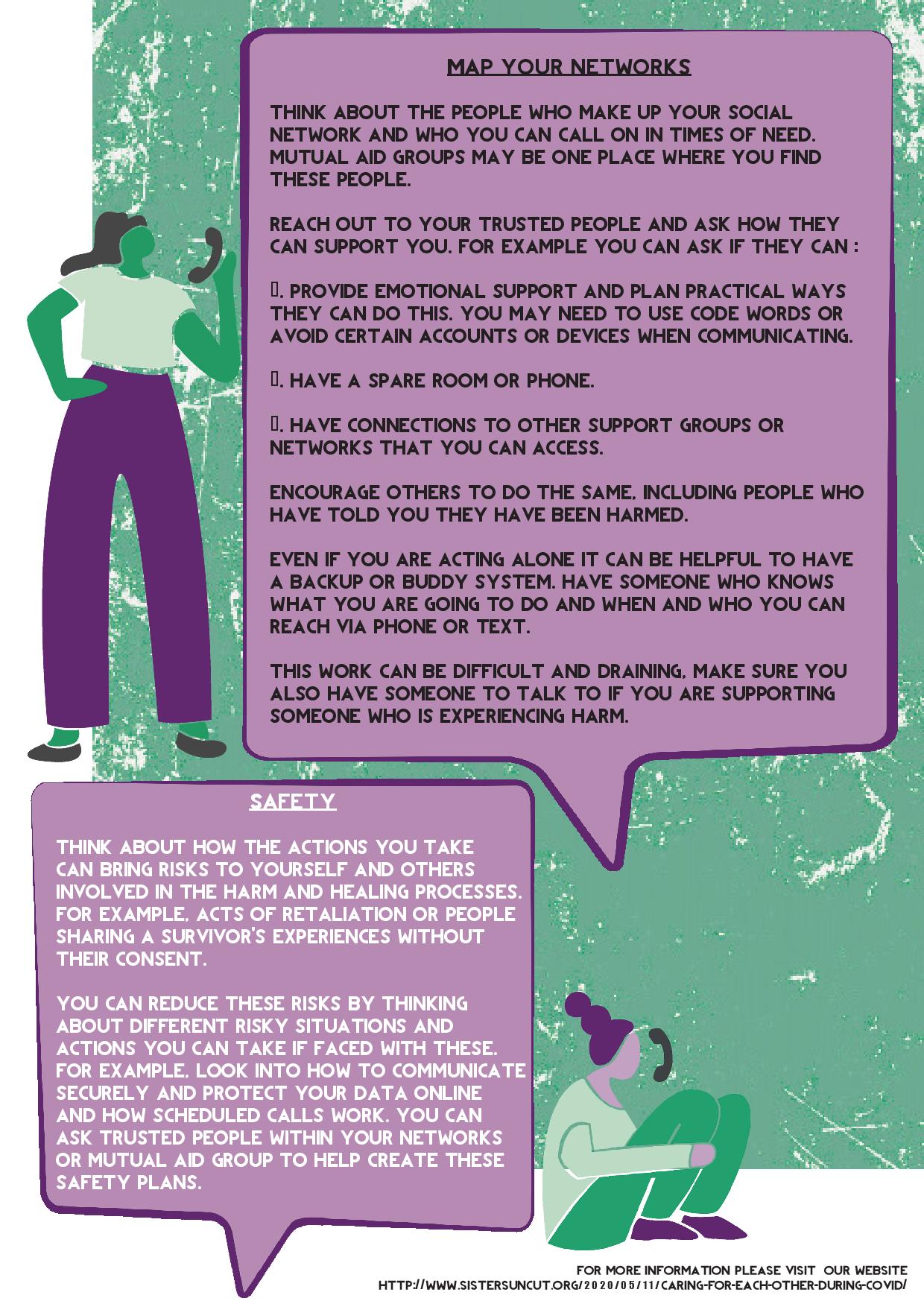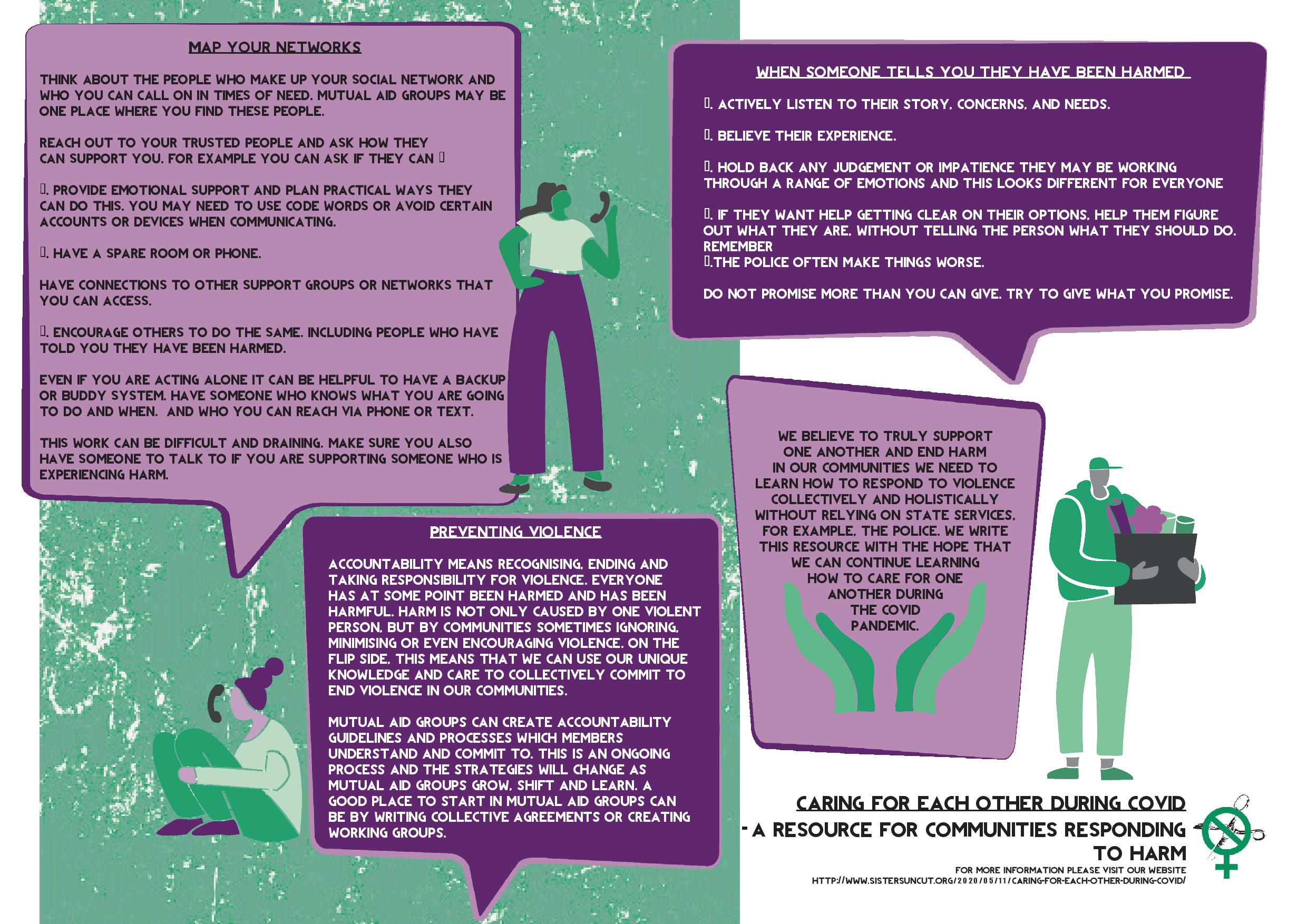Caring for Each Other During Covid – A Resource for Communities Responding to Harm
Wednesday, May 13, 2020
———————————————————————————————————————————————————
Sisters Uncut believe that learning how to support each other through harm is a continual process.
Mutual aid groups are currently building safe, non-hierarchical communities independent from the state and state services, such as the police and the Home Office across the country; and we know that domestic and sexual violence survivors will be part of these communities so we have put together suggestions to support people in these groups and beyond on helpful, survivor-centred support.
As we said in our statement on Covid-19; care work has always been devalued in this society because it doesn’t create profit; and it needs to be valued now more than ever. We must ensure no one is left behind; and this is only possible through accessibility, interdependence, collective action and commitment.
We have drawn up the below shorter resources and are in the process of finalising resources for survivors, and those supporting survivors. We will upload these to this page soon and a plain text version of these shorter resources can be found at the bottom of the page.
We will also be organising webinars for the wider network and if you are interested in attending or would like us to deliver something with your mutual aid group please email [email protected]. More details will be coming soon regarding the webinars.
———————————————————————————————————————————————————
———————————————————————————————————————————————————
———————————————————————————————————————————————————
Plain text version:
We believe to truly support one another and end harm in our communities we need to learn how to respond to violence collectively and holistically without relying on state services, e.g. the police. We write this resource with hope that we can continue learning how to care for one another during the COVID-19 pandemic.
When someone tells you they have been harmed
- Actively listen to their story, concerns, and needs.
- Believe their experience.
- Hold back any judgement or impatience – they may be working through a range of emotions and this looks different for everyone.
- If they want help getting clear on their options, help them figure out what they are. Try not to lead the conversation or tell them what to do. Remember that calling the police brings more harm.
- Don’t promise more than you can give. Try to give what you promise.
Map your networks
Think about the people who make up your social network and who you can call on in times of need. Mutual aid groups may be one place where you find these people.
Reach out to your trusted people and ask how they can support you. For example you can ask if they:
- Can provide emotional support and plan practical ways they can do this. You may need to use code words or avoid certain accounts or devices when communicating.
- Have a spare room or phone.
- Have connections to other support groups/ networks that you can access.
Encourage others to do the same, including people who have told you they have been harmed.
Even if you’re acting alone it can be helpful to have a backup or buddy system. Have someone who knows what you’re going to do and when, and who you can reach via phone or text. This work can be difficult and draining, make sure you also have someone to talk to if you are supporting someone who is experiencing harm.
Safety
Think about how the actions you take can bring risks to yourself and others involved in the harm and healing processes. For example, acts of retaliation or people sharing a survivor’s experiences without their consent.
You can reduce these risks by thinking about different risky situations and actions you can take if faced with these. For example, look into how to communicate securely and protect your data online and how scheduled calls work. You can ask trusted people within your networks or mutual aid group to help create these safety plans.
Preventing violence
Accountability means recognising, ending and taking responsibility for violence. Everyone has at some point been harmed and has been harmful. Harm is not only caused by one violent person, but by communities sometimes ignoring, minimising or even encouraging violence. On the flip side, this means that we can use our unique knowledge and care to collectively commit to end violence in our communities.
Mutual aid groups can create accountability guidelines and processes which members understand and commit to. This is an ongoing process and the strategies will change as mutual aid groups grow, shift and learn. A good place to start in mutual aid groups can be by writing collective agreements or creating working groups.



